IT
Computers in Moldova, more infected than the world average
The Microsoft Security Intelligence Report showed the infecting rates of the computers from the world.
21,5% of the computers from Moldova have been tackling with malware programs in the second quarter of 2015, while the world average rate is only 14,8%. The report is pretty accurate for Moldova, taking in account the small proportion of Mac and Linux-based computers in Moldova, compared to Microsoft Windows users.
The report also shows that the free tool included in Windows, Malicious Software Removal Tool, detected and deleted malware in 12,4% of computers, comparing to 8,4% worldwide.
The most common malware programs in Moldova are:
1. Trojans (10%)
2. Obfuscators and injectors (3,3%)
3. Worms (3,3%)
When it comes to unwanted software categories, Moldovan users have to meet:
1. Browser modifiers (6,2%)
2. Software bundlers (1,1%)
3. Adware (0,7%)
At the same time, only 69% of the Windows users in Moldova are somehow protected.
The full report can be read here.
Important
#WorldForUkraine – a map that shows the magnitude of the world’s actions against Russian aggression

The international community and volunteers from all over te world have launched #WorldForUkraine as a platform that shows the magnitude of the world’s actions against the Russian aggression. In a digital world – it is an interactive map of public support of Ukrainians under the hashtag #WorldForUkraine – rallies, flash mobs, protests around the world. In the physical dimension – it is your opportunity to take to the streets and declare: “No to Putin’s aggression, no to war.”
„Today, along with the political and military support, emotional connection with the civilized world and truthful information are extremely important for Ukraine. The power to do it is in your hands. Join the #WorldForUkraine project and contribute to the victorious battle against the bloodshed inflicted on Ukraine by the aggression of the Russian Federation”, says the „about the project” section of the platform.
Go to the streets — Tell people — Connect and Unite — Become POWERFUL
Volunteers have launched #WorldForUkraine as a platform that shows the magnitude of the world’s actions against Russian aggression. In digital world – it is an INTERACTIVE MAP of public support of Ukrainians worldforukraine.net under the hashtag #WorldForUkraine – rallies, flash mobs, protests around the world. In the physical dimension – it is your opportunity to take to the streets and declare: “No to Putin’s aggression, no to war.” There you may find information about past and future rallies in your city in support of Ukraine. This is a permanent platform for Ukrainian diaspora and people all over the world concerned about the situation in Ukraine.
So here’s a couple of things you could do yourself to help:
* if there is a political rally in your city, then participate in it and write about it on social media with geolocation and the hashtag #WorldForUkraine
* if there are no rallies nearby, organize one in support of Ukraine yourself, write about it on social media with geolocation adding the hashtag #WorldForUkraine
The map will add information about gathering by #WorldForUkraine AUTOMATICALLY
Your voice now stronger THAN ever
All rallies are already here: https://worldforukraine.net
Opinion
Russia And Ukraine At The Beginning of 2022
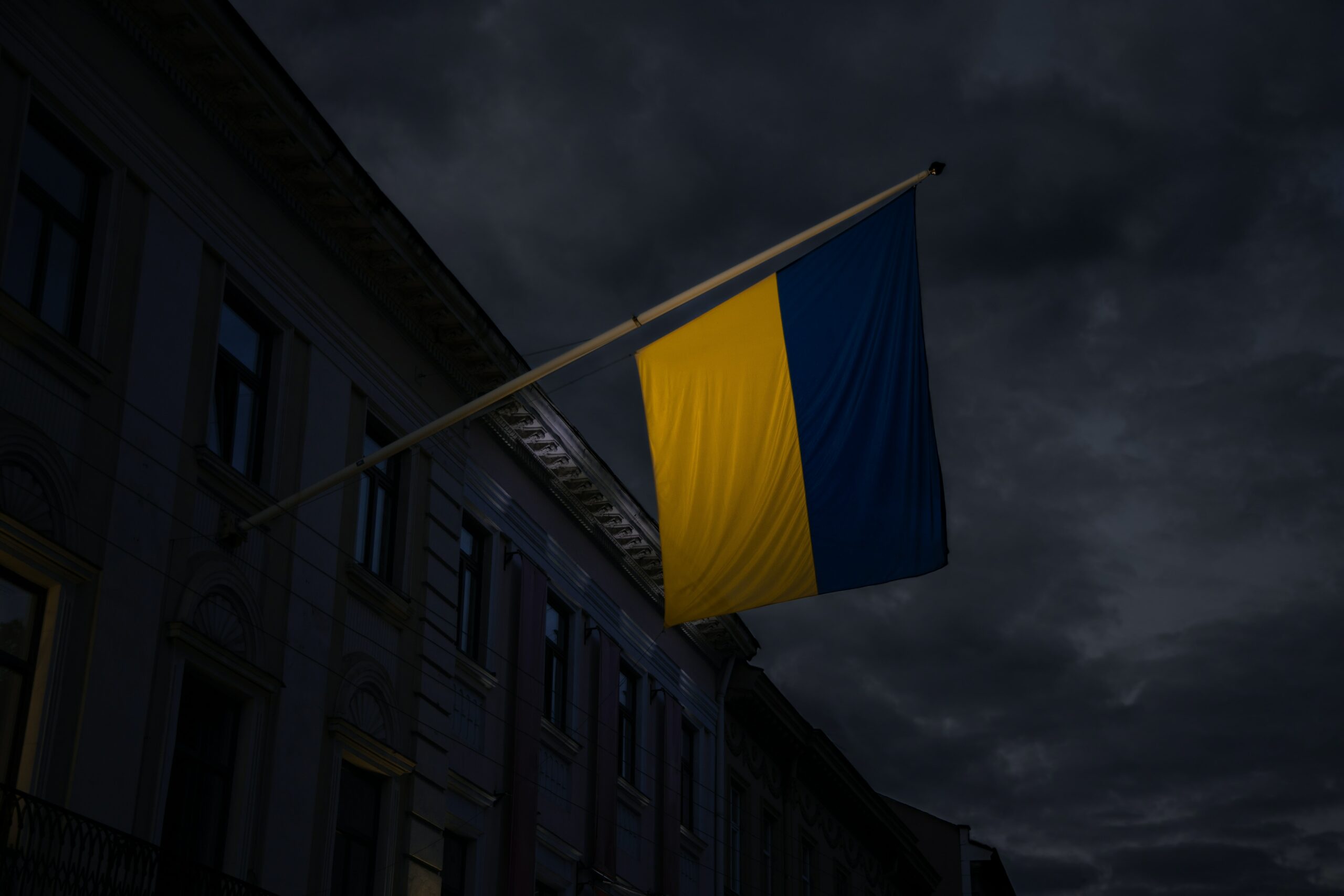
This opinion piece was written by Dr. Nicholas Dima. Dr. Dima was formerly a Professor of Geography and Geopolitics at Djibouti University, St. Mary’s University College and James Madison University. From 1975 to 1985 and from 1989 to 2001, Dr. Dima was a Writer and Field Reporter at Voice of America. The opinion does not necessarily represent the opinion of the editorial staff of Moldova.org.
***
The 21st Century Russian Federation is a rebirth of the 19-th Century Tsarist Empire; a huge territory inhabited by hundreds of ethnic groups held together by an authoritarian government. Having acquired a diversity of lands and peoples that would not freely want to be together, Moscow has to be on guard. It has to keep an eye on those who are inside the federation and to make sure that no outsiders threaten its territory. Otherwise, in a nutshell, Ukraine is Russia’s biggest dilemma and Russia is Ukraine’s biggest nightmare!
In 1991 Moscow agreed reluctantly to the dissolution of the former USSR. Ukraine became independent and consented to give up its nuclear arsenal inherited from the Soviet Union in exchange for territorial guaranties. Russia did not keep its engagement. It violated the Minsk protocol and in 2014, after a hybrid war, annexed Crimea. At the same time, pro-Russian forces took over two important eastern Ukrainian regions, Lugansk and Donetsk, where the population is ethnically mixed and somehow pro-Russian.
Since the annexation of Crimea, Moscow has strengthened its military presence in the peninsula and in the Black and Azov Seas. Furthermore, it built a strategic bridge that connects Crimea with the Russian mainland. Then, Russia began to reject NATO activities in East Europe and to denounce the presence of the US Navy in the Black Sea as provocations. In order to counter NATO, Russia also brought some of its warships from the Caspian Sea to the Black Sea through the Volga-Don Canal.
During recent years, Ukraine approached the United States and NATO and asked for assistance and, eventually, for membership in the EU and possibly NATO. For Moscow, however, Ukraine is an essential buffer zone against the West. With President Vladimir Putin lamenting the dismemberment of the USSR and embracing the traditional Russian expansionist mentality, the perspective of Ukraine’s NATO membership would be an existential threat.
The current situation at the Russo-Ukrainian border is tense and the stakes are high. Neither country is satisfied with the status quo, but the choices are very risky. The important Donbas region of East Ukraine, controlled by pro-Russian forces, is in a limbo. Ukrainian President Volodymyr Zelensky is losing support among the people and must defend his country’s integrity. Currently, Putin has the upper hand and military superiority on his side, but using brute force in the conflict could trigger further Western economic sanctions and even military hostility.
For now it seems that Moscow is mainly posturing, but the true Russian intentions are not clear. Thus, a miscalculation could trigger a catastrophe of international proportions. No one knows how the events will play out, but the danger is obvious. Moscow is playing with fire. Apparently, it does not want a full war, neither the current stalemate, nor a retreat. What does it want? It seems that Moscow knows what it wants, but not necessarily what it can!
Regionally, the situation between Europe and Russia is complex and internationally the world is confronted with threatening new realignments. With the help of Russia, Belarus has encouraged thousand of Middle East migrants to assail the Polish border and the European Union. Poland has mobilized its forces and NATO and EU are on alert. The three Baltic countries also feel threatened. And the recent Russo-Chinese economic cooperation and military rapprochement reinforce the international apprehension.
Since the dissolution of the USSR, Russia went through several uneasy stages. During the first years of transition toward a new political system Russia experienced economic decline and popular unrest. Then, Putin took over and managed to stabilize the country. Russia opted for security and stability instead of political democracy and economic prosperity. At the same time, Kremlin focused its resource on the military and strengthened Russia’s war capacity.
For the time being, Russia may want to perpetuate the current situation and to keep Ukraine under its thumb. However, things are not static and sometimes they move unpredictably. What if Ukraine does become a NATO member? Then, it will be impossible for Russia to challenge Kyiv without triggering a devastating war. On the other hand, waiting is not in Russia’s advantage. Demographically, ethnic Russians are declining and the non-Russians, mostly Muslims, are fast increasing. The continuous emigration to the West of many Russians is not helping the population balance either. This trend will almost certainly renew old conflicts especially in the unsettled Caucasus region…
Attacking Ukraine now, overtly or through a hybrid war, would be risky for Russia and would not bring a lasting solution to the dispute. The war could destabilize Kyiv and even dismember Ukraine, but it would also destabilize the Russian Federation. The present tension will probably be diffused, but the next time around, in about 10 to 20 years, Putin will be gone, Moscow itself will be in disarray, Caucasian Muslims will be asking openly for independence and Ukraine will be ready and capable to fight Russia.
A Russo-Ukrainian war, now or later, will immediately have regional effects engaging Belarus and most likely Poland, the Baltic States, Moldova, Romania and implicitly NATO. Romania, for example, will follow its western allies, but it could not ignore the fact that certain formerly Romanian lands are now part of Ukraine. As for Moldova, beyond the facts that Moldovans are Romanians, its Transnistrian (Transdnestr) area is entirely under Russian control and in an eventual war will be used by Moscow against Ukraine.
Nicholas Dima, January 1, 2022
IT
Moldova IGF: Finding a balance between sustainability and digital development together
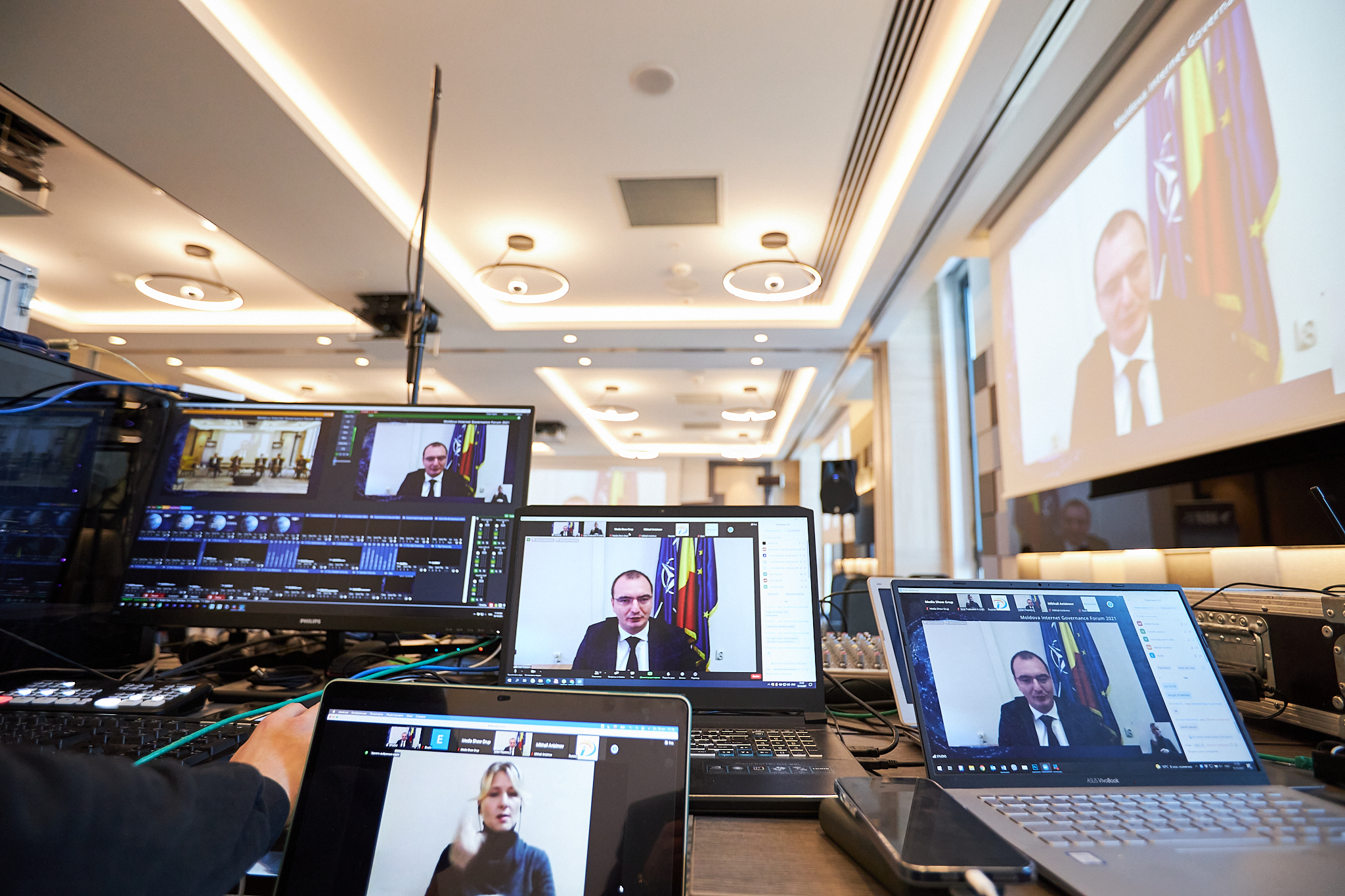
This week Moldova hosted the second Internet Governance Forum (MIGF 2021), which took place in a hybrid format on October 19-20. The Forum, organized by the Association “Comunitatea Internet”, became an international platform for an open dialogue between different stakeholder groups: civil society, technical and scientific community, private sector, government and public sector.
Parliamentarians, representatives of the government and key state institutions, international and non-governmental organizations, technology and consulting companies, experts in the field of digital business and digital development joined the discussions. More than 50 speakers and experts from Moldova, Romania, Ukraine, Russia, Georgia, Estonia, Serbia, Kyrgyzstan, Kazakhstan, Canada, USA and other countries participated in MIGF.
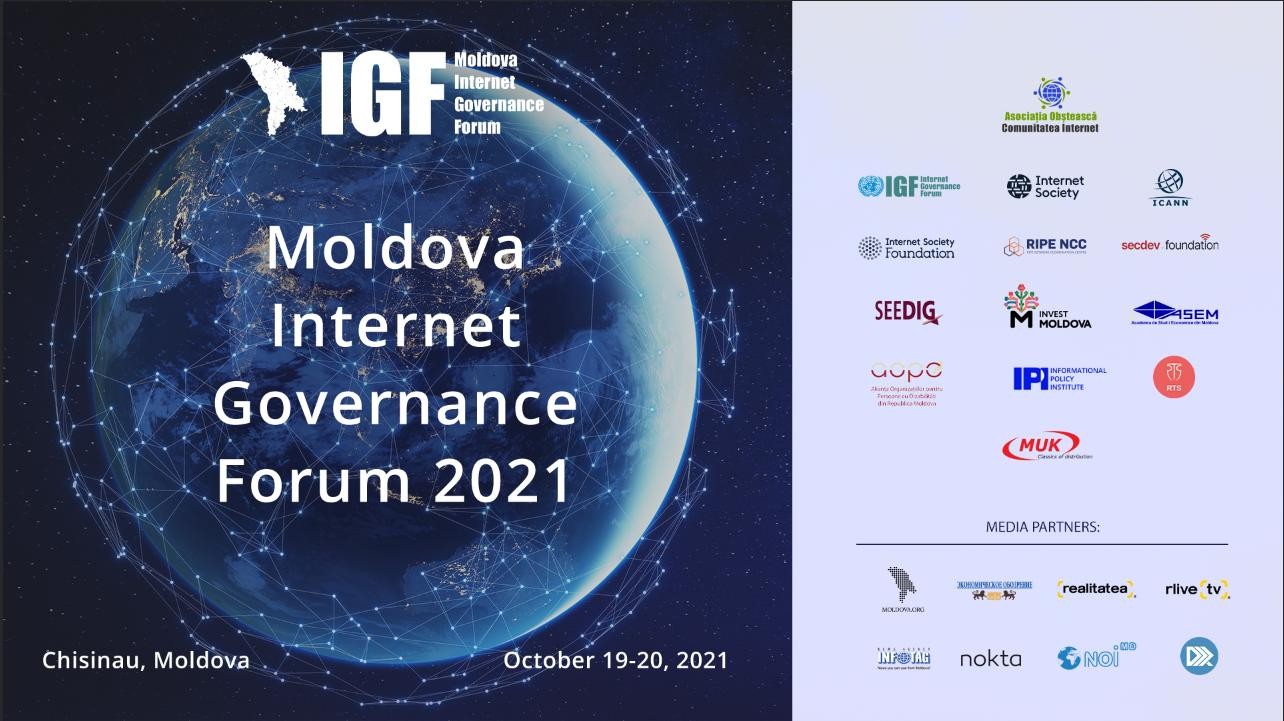
Iurie Țurcanu, Deputy Prime Minister for Digitalization, said at the Opening of the Forum that “we need a safe and secure Internet, we must make every effort to have a guaranteed and secure virtual space, where every user can use the Internet safely”. “MIGF is a good opportunity to discuss this topic of great importance, especially now, in the context of the global pandemic crisis. I would like to note the importance of meeting in this format and the need to strengthen the efforts of different categories of actors, such as the public sector, civil society, the technical community, academia, the private sector, international organizations, to discuss problems related to access to the Internet, as well as security in the virtual environment. I would like to thank the participants and organizers for having the courage to organize such an event in such difficult times”, the Deputy Prime Minister noted.
Iurie Țurcanu assured of the Moldovan Government’s openness for cooperation. “It is crucial for us to maintain this connection and, by combining efforts, perseverance and consistent investments, find a balance between sustainability and digital development. Leveraging the resources of multi-stakeholder partnerships can facilitate investments in digital infrastructure and build capacity for data privacy and security. These actions are essential for Moldova’s digital future,” concluded the Deputy Prime Minister.
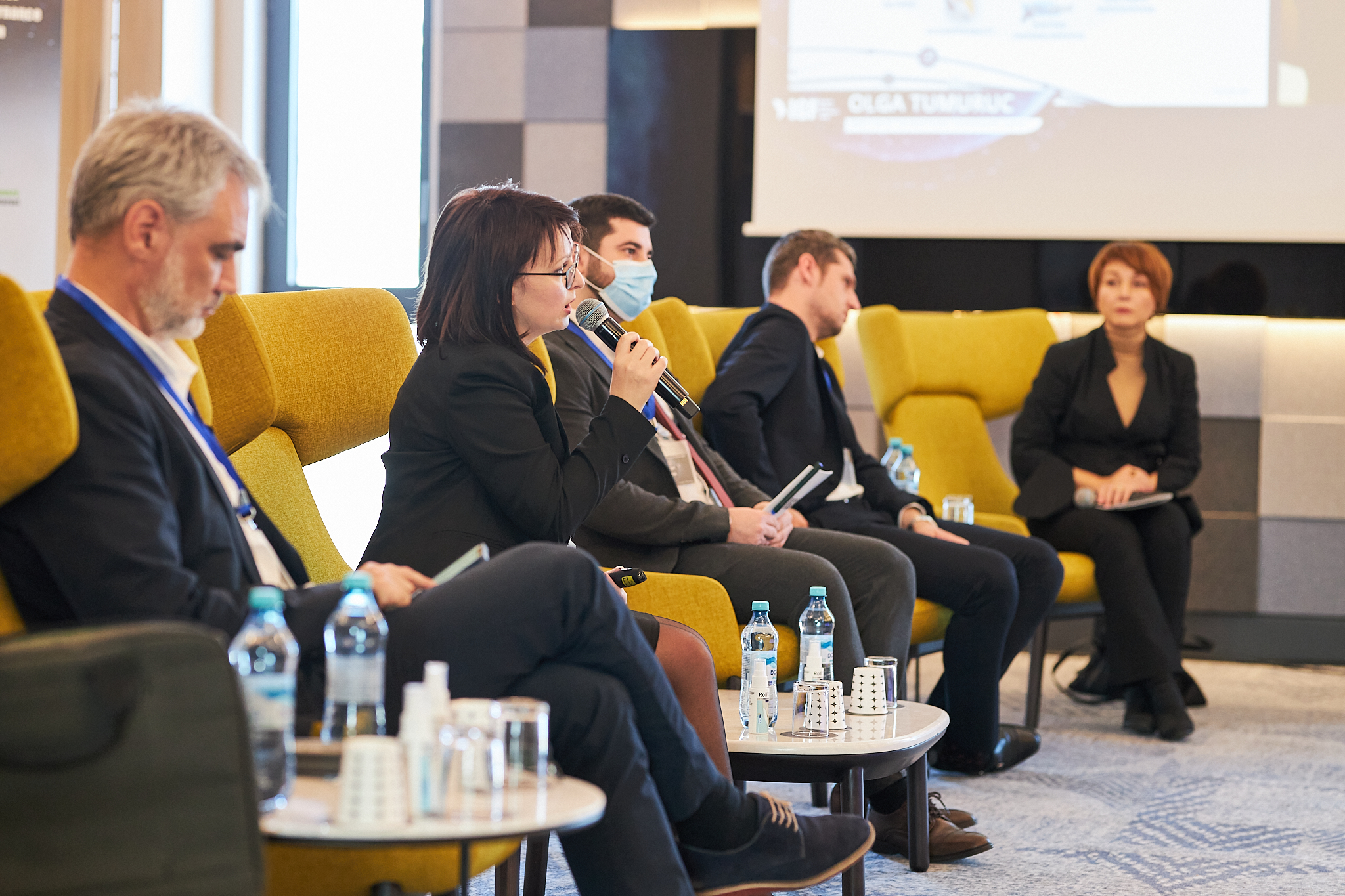
Stelian Manic, Director General of the Invest Moldova Agency, recalled the importance of efficient Internet governance in the modern society. He said the Internet governance ecosystem implies that each country must bring technological innovations to the government, redefining processes, streamlining public services and engaging them for the benefit of citizens. At the same time, he pointed out that Internet governance is not just about effective, efficient and responsive management based on smart investments in information technology. It must also be about security and reliability, sustainability and trust.
“Whether the Internet will be transparent, secure and accessible to all depends on our ability to work together and guide these technologies in ways that maximize benefits and minimize unintended consequences and risks. All we need to do now is create a safe space that promotes the empowerment of Internet users. A safe space for learning, work, play, discovery and growth”, stated the Head of Invest Moldova.
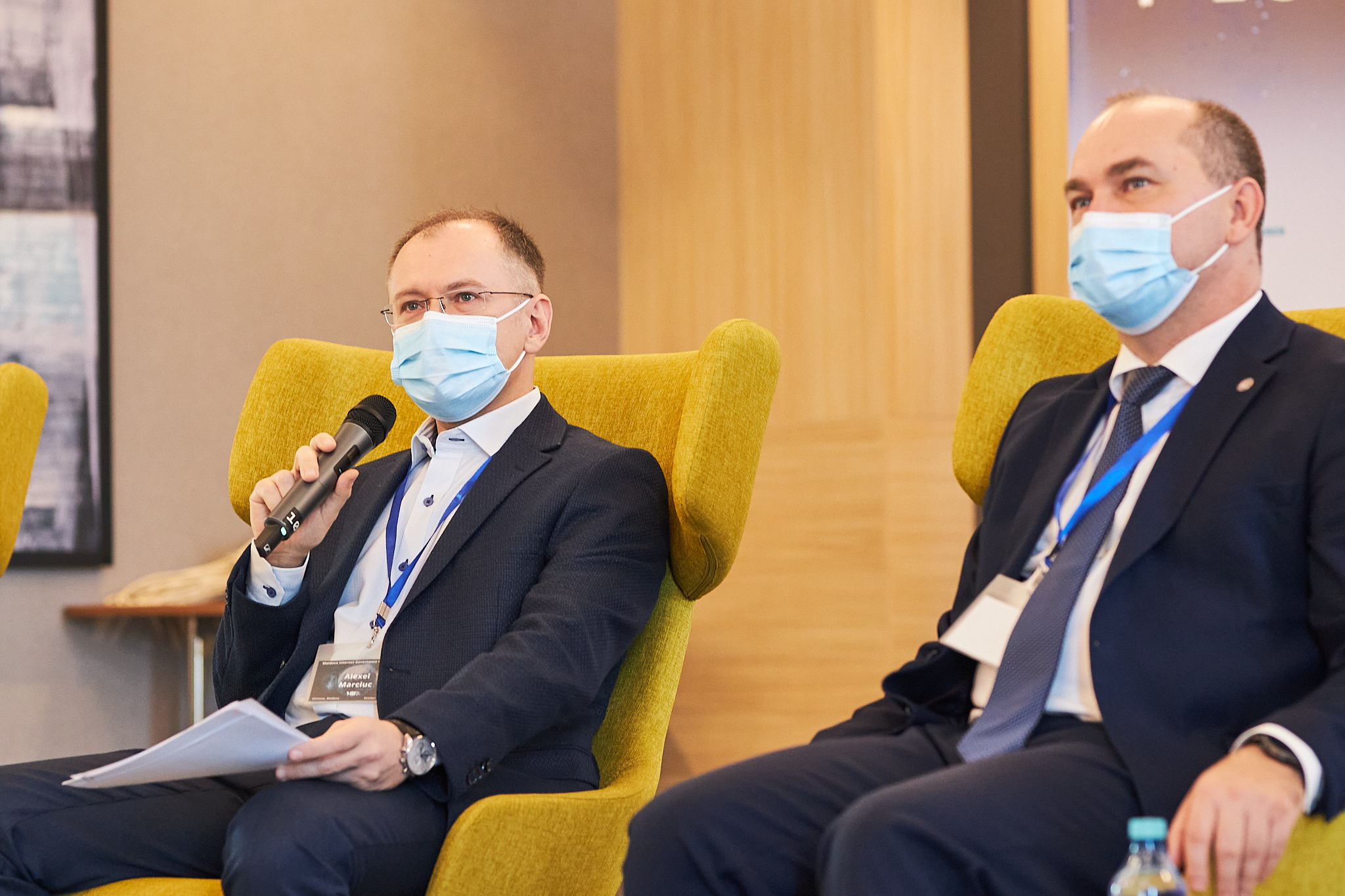
Representatives of international partner organizations addressed the Forum participants with welcoming remarks: Chengetai Masango, Head of the United Nations Secretariat for the Internet Governance Forum, David Frautschy Heredia, Director for European Government and Regulatory Affairs at Internet Society (ISOC), Mikhail Anisimov, Head of Global Stakeholder Engagement for Eastern Europe and Central Asia, Internet Corporation for Assigned Names and Numbers (ICANN), Chris Buckridge, Head of External Relations for the RIPE NCC, Regional Internet Registry for Europe, the Middle East and Central Asia, Olga Kyryliuk, Chair at South Eastern European Dialogue on Internet Governance (SEEDIG), Tattu Mambetalieva, Chair at Central Asian Internet Governance Forum (CAIGF).
Speakers welcomed multi-stakeholder discussions involving national and international stakeholders on how best to use digital data for the public good, how to shape and improve data governance mechanisms that recognize diversity, empower business and civil society, and contribute to the Sustainable Development Goals. These goals include bridging the digital divide, promoting digital inclusion, achieving universal connectivity, and protecting human rights on the Internet.
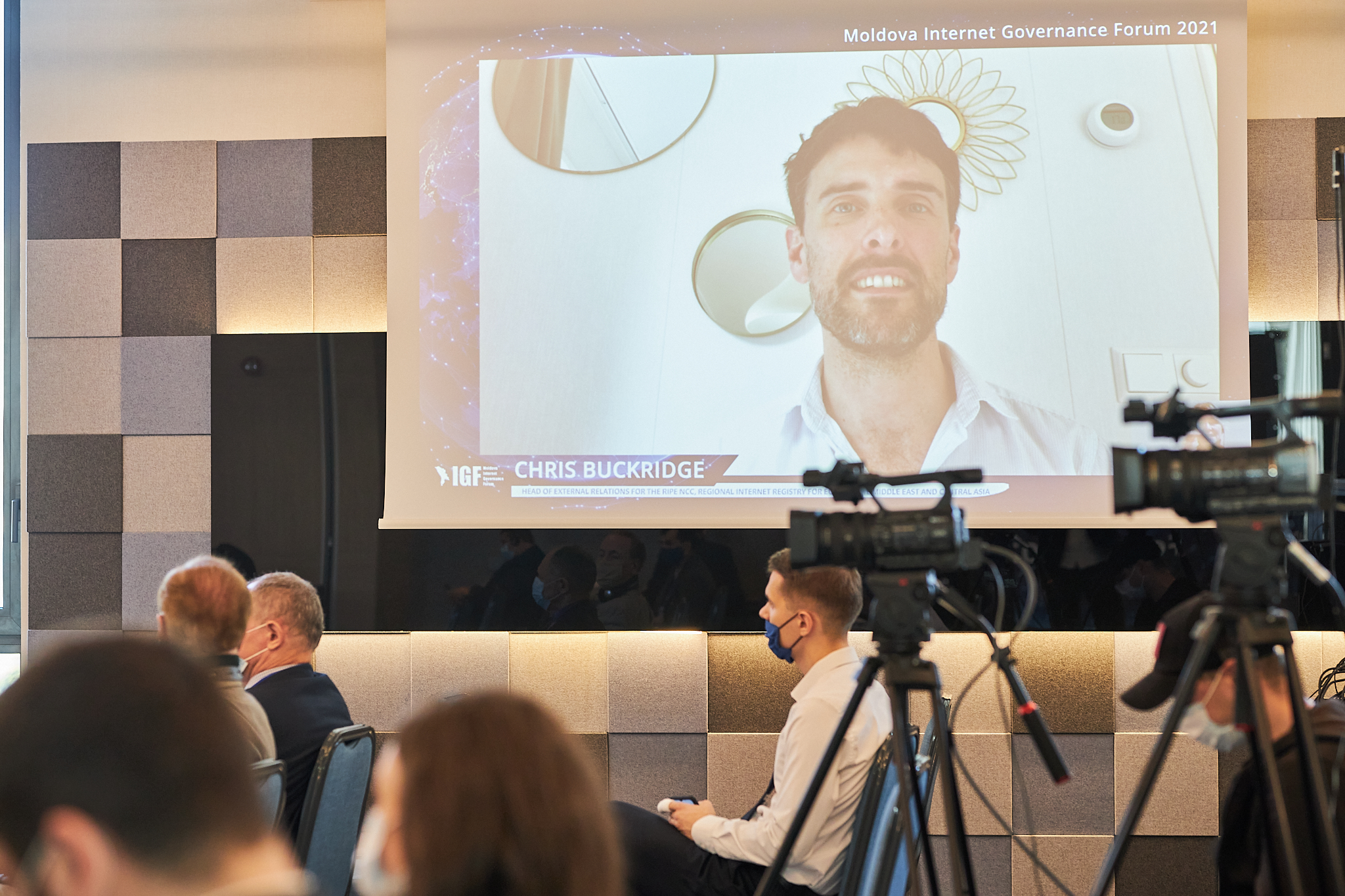
Alexei Marciuc, Chairman of the Association “Comunitatea Internet” and MIGF coordinator, reminded that the Internet Governance Forum is held in Moldova for the second year in the context of the COVID-19 pandemic, which highlighted the importance of digital technologies and the urgent need to enhance the role of IGF as a platform for dialogue, playing a unique role in the architecture of digital cooperation. He said the pandemic highlighted the needs of digital development and the need for digital empowerment.
“Two years into the COVID-19 pandemic confirmed that Internet access protects health care, jobs and, without exaggeration, lives. At the same time, the pandemic exacerbates inequalities of all kinds, including the digital divide. Those without access to digital technologies are deprived of the opportunity to learn, communicate, trade, shop, work and participate in many areas of modern life. On the other hand, connectivity has increased vulnerability to harm and abuse of all kinds. In particular, we have encountered an increase in such phenomena as disinformation, hate speech, and discrimination in the digital space,” said Alexei Marciuc.
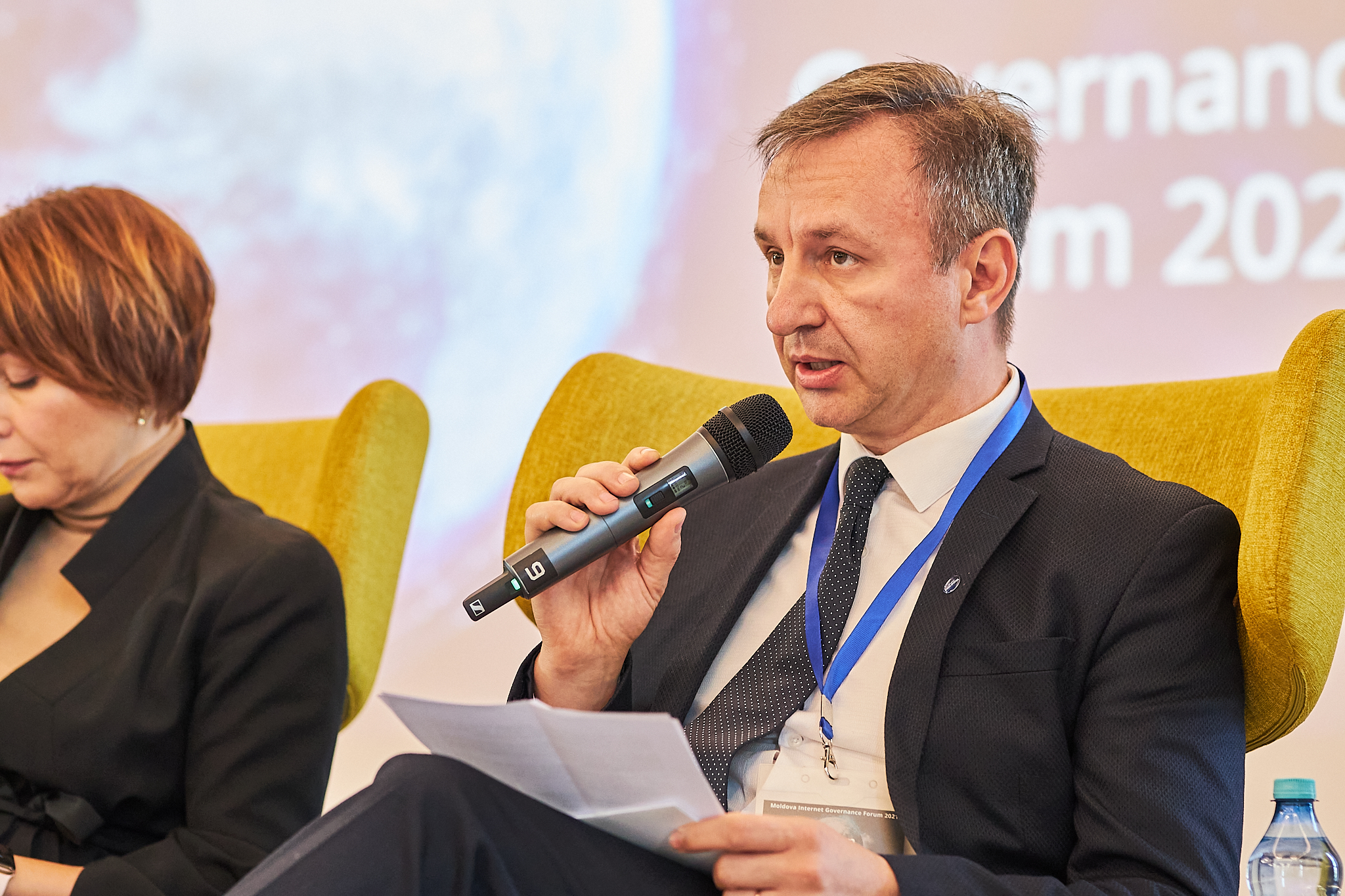
Olga Tumuruc, Director of the e-Government Agency, took part in the panel discussion “Digital Inclusion and Multilateral Cooperation in Managing the Digital Future,” she presented to the audience the work of the institution and its main tasks: modernization of public services, coordination of investments in information technologies, development and implementation of e-transformation solutions, creation of platforms and services to improve relations between the state, citizens and business. Olga Tumuruc also mentioned initiatives for digital inclusion of certain categories of population and ensuring access to public services for people with disabilities through innovative tools, applications and modern technologies.
The Internet Governance Forum in Moldova is held with the support of international partners, including the UN IGF Secretariat, ICANN, Internet Society, Ripe NCC, SecDev Foundation and national partners – Invest Moldova Agency, Academy of Economic Studies, IT consulting and security companies RTS and MUK, as well as a number of civil society organizations and state institutions.
At the core of this year’s MIGF agenda: digital inclusion, which is necessary for sustainable economic recovery, issues of trust, security and stability in the digital space, Internet freedom, e-learning, regulation of ICT sector in the period of digital transformation. A separate session addressed the issues of digital accessibility for people with disabilities and special needs. In addition, the Forum included special events organized jointly with Freedom House and The SecDev Foundation, Canada.





















